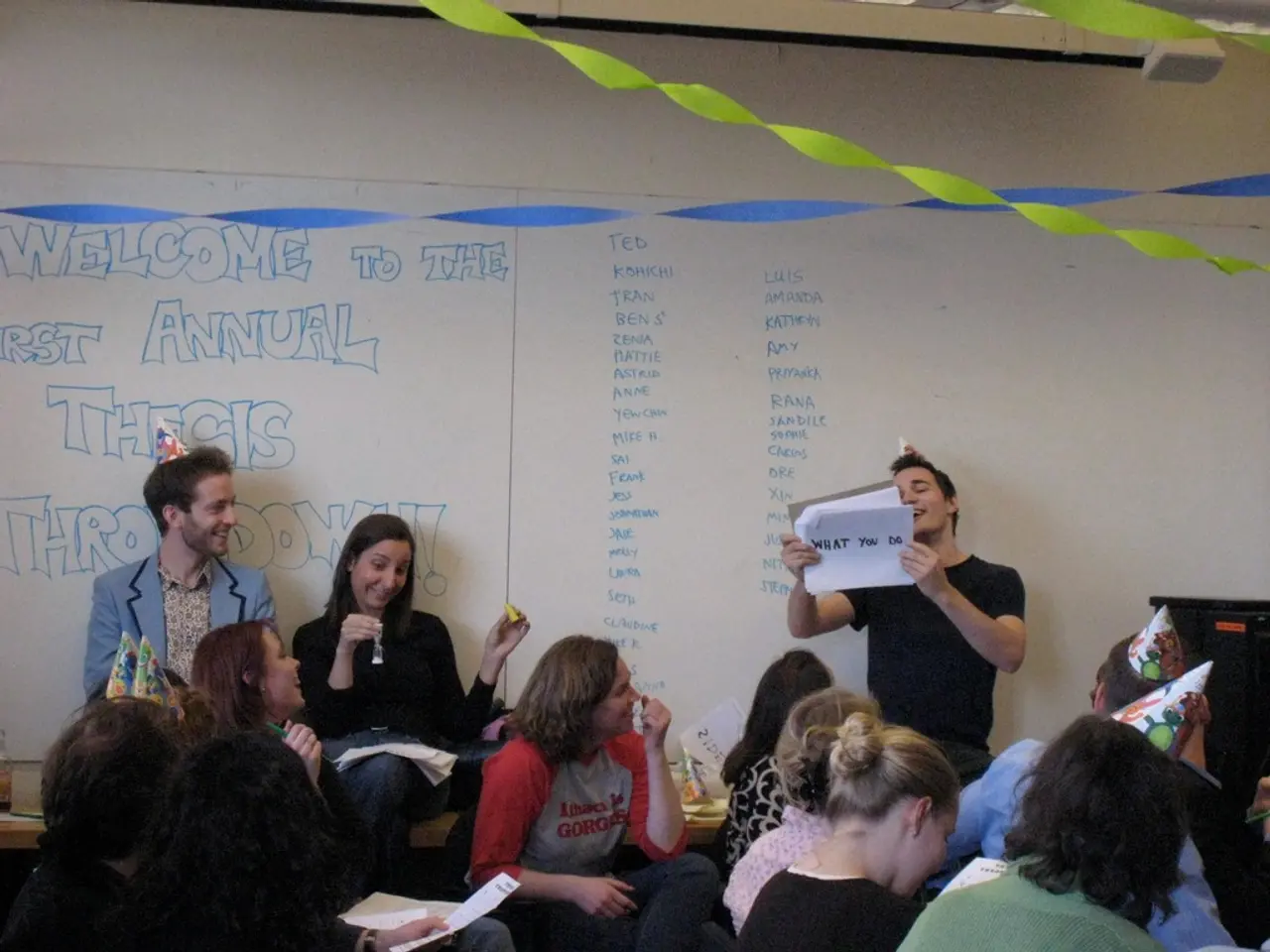Unveiling the Emerging Talents in the Field of Cancer Research
The Wilmot Cancer Institute at the University of Rochester School of Medicine and Dentistry is making strides in cancer research, education, and community engagement. The institute's new Cancer Biology curriculum is designed to foster future leaders in cancer research and promote equitable practices in cancer care.
Emily Whitt, a fourth-year student in the Pathology - Cell Biology of Disease graduate program, is one such leader. Her research focuses on the chemical modification of proteins called histones that turn genes on and off, and how their loss affects breast cancer cell invasion. Whitt, who grew up in Pullman, WA, and earned a bachelor's degree in Biophysics from Brigham Young University before beginning her studies at the University of Rochester, is studying the molecular switch that tells breast cancer cells to spread to other tissues.
Joining Whitt in the quest to unravel the mysteries of breast cancer is Bachelard Dieujuste, a second-year student in the Biomedical Genetics and Genomics graduate program. Originally from Haiti, Dieujuste is focused on the phenomenon of gene modification in promoting breast cancer.
The Cancer Biology program, overseen by Brian J. Altman, Ph.D., now an assistant professor of Biomedical Genetics and a member of Wilmot, is designed to train tomorrow's leaders in cancer research. This curriculum integrates clinical, research, and educational activities with a strong emphasis on diversity, equity, and inclusion (DEI) to foster more inclusive clinical trial designs and training pathways.
Christina Kaszuba, a second-year student in the Biomedical Engineering graduate program, appreciates the various perspectives in the Cancer Biology curriculum. Kaszuba, who studies leukemia's microenvironment in bone, values the collaborative, multidisciplinary training opportunities provided by the program.
Zachary Sechrist, a second-year graduate student in the Pathology-Cell Biology program, is also a part of this collaborative research environment. Sechrist, who joined the graduate program at UR in 2021, is working with mentor Calvin Cole, Ph.D., assistant professor of Surgery and Orthopaedics and a Wilmot member. Sechrist's research is focused on chronic, low-grade inflammation induced by the tumor as a possible cause of cachexia, a common side effect that diminishes quality of life and can prevent patients from withstanding certain treatments.
The WilCaTs group, formed by graduate students in the cancer biology concentration in early 2021, serves as a platform for students and trainees to connect and support each other. The group holds student-led workshops where members can teach specific lab skills or techniques, review grant applications or papers, and work out the kinks on a grant proposal or ensure a scientific paper tells a coherent story. The WilCaTs group has started to get involved in community events, such as the 2022 Wilmot Survivor's Night and the 2023 STEM Community Day.
The Cancer Biology curriculum at the Wilmot Cancer Institute is not just about educating future cancer researchers and clinicians with cutting-edge knowledge and skills. It is also about implementing equitable research practices that improve cancer outcomes across diverse populations. The curriculum aims to implement a collaborative care model that integrates routine reporting and analysis of clinical metrics across race, ethnicity, and gender to improve equity in cancer research and treatment outcomes. It supports faculty and trainee collaboration via initiatives that increase the representation of underrepresented minorities in medicine and create international clinical care and research opportunities.
These efforts provide students and trainees with exposure to a comprehensive cancer research curriculum that combines scientific training with a focus on social justice and healthcare disparities. The collaborative approach enhances translational research that is both scientifically rigorous and socially relevant, ultimately enriching the cancer research community’s capacity to address diverse patient needs and disparities in cancer care.
In summary, the Wilmot Cancer Institute's Cancer Biology curriculum is designed not only to educate future cancer researchers and clinicians with cutting-edge knowledge and skills but also to implement equitable research practices that improve cancer outcomes across diverse populations, serving both educational and community-oriented purposes.
[1] Reference for further reading: [Insert reference here if available]
- Emily Whitt and Bachelard Dieujuste, both students in the Cancer Biology program at the Wilmot Cancer Institute, are working to uncover the mysteries of breast cancer, with Whitt studying the molecular switch that tells breast cancer cells to spread and Dieujuste focusing on the phenomenon of gene modification in promoting breast cancer.
- The Cancer Biology curriculum at the Wilmot Cancer Institute aims not just to educate future cancer researchers and clinicians with cutting-edge knowledge and skills, but also to implement equitable research practices that improve cancer outcomes across diverse populations, ultimately serving both educational and community-oriented purposes.




